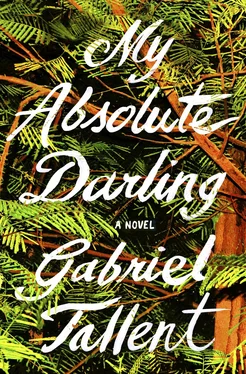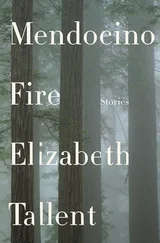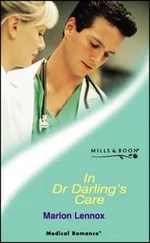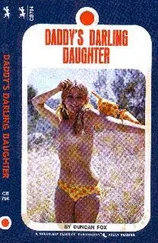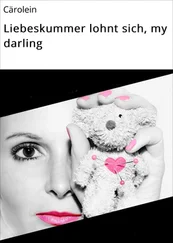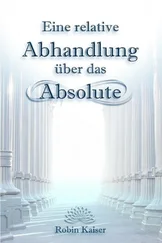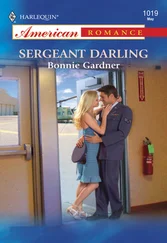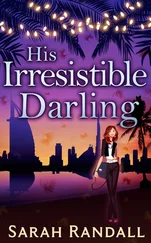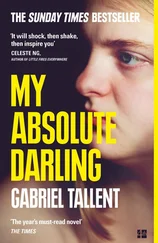Anna is looking at Turtle very closely now, and Turtle can tell that it’s almost as if she is telling the truth and that Anna does not quite know what to say. Anna is good at looking at a girl and gauging, but Turtle has it all almost out of her mind and it’s like it’s true and the truth of it is surprising to Anna. The truth and the way she’s put it.
“Oh, Julia. I’m so sorry to hear that. That must be terribly hard.”
“I thought you should know.”
“Julia, you’re amazing.”
Turtle says nothing.
Anna says, “You’re very unusual, do you know that? You have an unusual mind. Okay, okay, Julia, that is fair; that is fair, and that would be upsetting to have someone be suspicious. You are so incredibly smart. I can see that you love your father, and it would be upsetting for anyone to have those suspicions, and I want you to be able to talk to me, and I want to be able to be your teacher. So I hear you, that your father is grief-stricken, and that things are hard at home, but that there’s no wrongdoing. I hear you and I respect that. But let me say this—”
“No.”
“Let me say this,” Anna says.
“Don’t.”
“If it ever goes badly, I will be there for you. You call me, or you show up, any time of the day or night. You give me a call from anywhere, I will come and pick you up, no questions asked. All right? And you can stay with me for as long as you need to and I won’t even ask until you start talking, okay?”
“You’re not listening,” Turtle says. “That will never happen.”
“I hope not,” Anna says, “but I will be there. You hear me, don’t you?”
“I hear you,” Turtle says. “Do you hear me?”
“I hear you, and I believe you’re telling the truth. But if for some reason you were lying to me, if you felt like you had to lie to me, you wouldn’t need to be embarrassed. You could still call me and I’d never think less of you.” Turtle thinks, you suspicious bitch. That’s true, what I told you, that’s all true, even I believe that it’s true, and thinking this, she smiles at Anna, can feel herself smiling affectionately, as she always feels affection for people who are difficult for her, smiling and cracking her knuckles, and Anna says again, “I hear you.” She leaves it at that for a moment, and then she looks askance at Turtle again, and she says, “Day or night, and I will make it happen for you, Julia.”
Turtle sits there hating the other woman, thinking, you bitch, but smiling, self-conscious of this ugly expression on her own lean bitch face.
Anna says, “You want a ride to school?”
Turtle looks around, embarrassed. “Yes,” she says.
They walk back down the road in near silence. It is windy, and the grass and coyote brush lie this way and that in the blusters. Anna’s car is a blue Saturn with a kayak rack and kayak on top, the passenger side-view mirror duct-taped in place. There is a great blue heron standing on the hood of the car, better than four feet tall, blue-gray, with a shaggy chest and clean, slat-feathered wings. When it sees them, it takes to the air, rising up and flying along the headlands.
Anna gets in first, does something to unlock Turtle’s door, and Turtle has to lift up a colander of purple grapes from the passenger seat while Anna moves piles of books and papers, and then Turtle gets in and pulls her door closed, but it will not latch. Anna picks up a bungee cord bolted to the floor and strings it across Turtle’s legs to an eyebolt drilled into the door. Stone fetishes bound in grass and rawhide thongs hang from the rearview mirror and jostle one another. The front seats are covered in beach towels. The backseat has been laid down and covered in plastic sheeting and there’s a half-dried wetsuit laid in drifts of black sand. Anna tries the ignition several times before it catches. Then she puts the car in reverse, really bearing onto the stick shift, and they wait.
“What’s happening?” Turtle says.
Then Turtle hears the gears engage and the car startles and lurches back. Anna puts the car into gear and they go trundling away over the potholed parking lot, the car popping and lurching with unexpected engine noises. Anna drives up Little Lake and parks in the teachers’ lot. They sit together in the car for a moment, Turtle with the colander on her lap. She is looking around at the car. She thinks, it is a little like the house, miscared for, and then she thinks, but that isn’t true, because the car feels like home, and I am not sure if that’s how the house feels, exactly, and this car feels lived in, and I am not sure if that’s how the house feels, either. She thinks, it’s a strange thing, isn’t it? I like things that are well and carefully cared for, but this is something else. She thinks, what is this holding on to the car long after it has fallen apart? She thinks, I like that, too. Finally Anna says, “Well, I’m not glad you ditched class, but I am glad we got to have this talk.”
Turtle purses her lips, looks up at Anna. Anna wraps her hands around the steering wheel, unwraps them, rewraps them.
“What?” Turtle says.
The bell rings for recess, and the doors are swung wide and kids come pouring out. Turtle cannot see the greens from here, but she envisions students slinging backpacks off shoulders, sitting down to eat bag lunches and talk. Others are heading to the library or out to the field or the basketball courts.
“Go on,” Anna says, “it’s your recess.”
“What?” Turtle says again.
Anna sighs. She looks over at Turtle. She says, “It’s dumb. But you know Rilke is being bullied?”
Turtle nods.
“She’s new to the district, and she’s kind of a know-it-all and kind of a kiss-up.” Anna sighs again, and Turtle watches her. It’s a little shocking to think that what the students see, the teachers might see, too. Anna says, “Sometimes all it would take would be for someone to be like, ‘Hey, that’s not cool.’”
Turtle looks Anna up and down, incredulous. Anna looks away, and then looks back at Turtle and says, “It just makes me wistful, because if you could—you know, if you could find it in you to be there, sometimes, and just be like, ‘Hey, stop that.’ Those girls, they’re cowards. I don’t know that you’ve ever talked to your peers. I don’t think you care about them, but they respect you, Julia. There is something about you. I know you don’t have friends , not really, but they’re aware of you. It’s your attitude. You have this certain, this kind of—you’re not a girl anyone would try bullying. You have presence, I guess. I think you could stop it with a word. And you need help with your spelling and Rilke could help you with that. It just seems like an opportunity.” She looks at Turtle again.
Turtle has nothing to say.
That night, Turtle sits cross-legged with the AR-10 broken open before her and the bolt carrier gutted from the receiver, shining red in the firelight, stripped of bolt and cam and firing pin. She’s poured the carbon solvent into a lowball glass. It’s indistinguishable from whiskey. Turtle dips her rag in it, thinking, what if Anna is right and I am afraid to fail? She thinks, is it strange that Anna would tell me what Martin has told me—that I am afraid to fail and for that reason, too afraid to try? Is it strange that they would see the same thing in me, my hesitation, my paralyzing self-doubt? She thinks, you are bound to make mistakes, and if you are unwilling to make mistakes, you will forever be held hostage at the beginning of a thing, you have to stop being afraid, Turtle. You have to get in the practice of being swift and deliberate, or one day, hesitation will fuck you.
• • •
THE NEXT MORNING, she comes down the stairs and stands in the kitchen cracking eggs into her open mouth, and when Martin comes down the hall buttoning his flannel, she slings him a beer across the counter. He catches it, hooks it on the counter’s edge, bangs the cap off.
Читать дальше
Конец ознакомительного отрывка
Купить книгу
